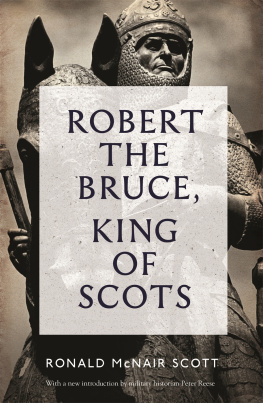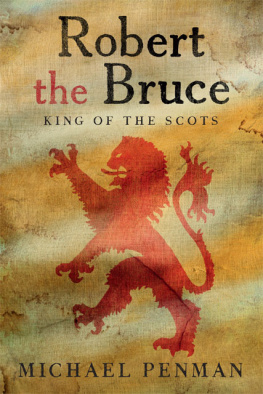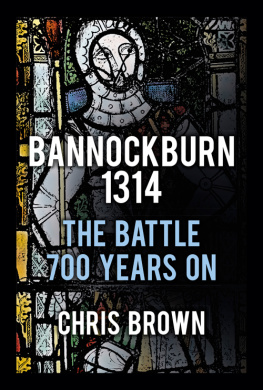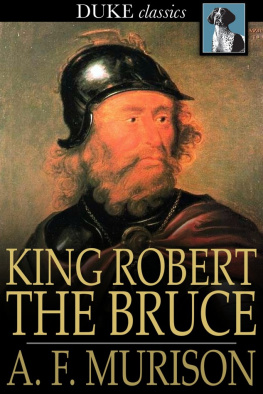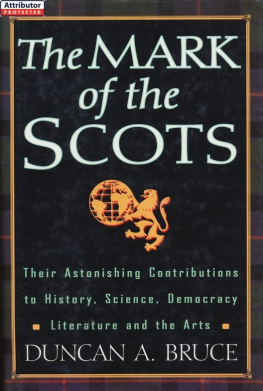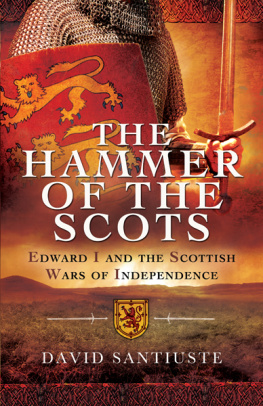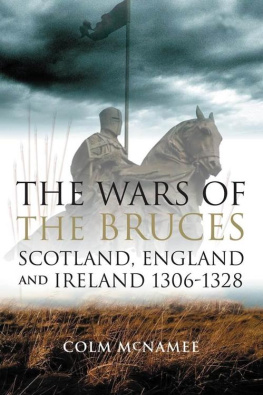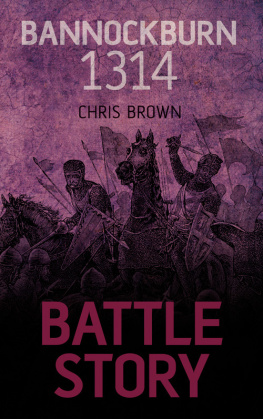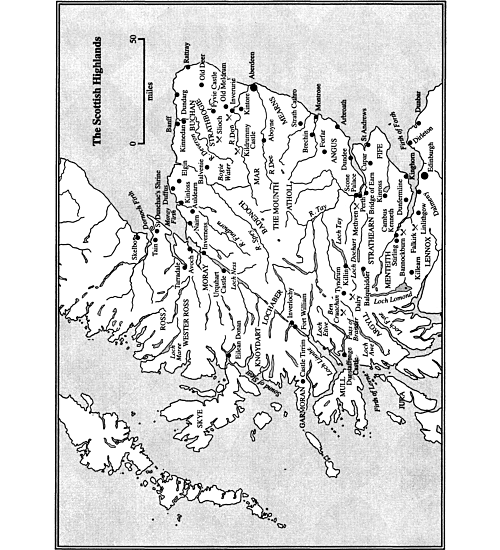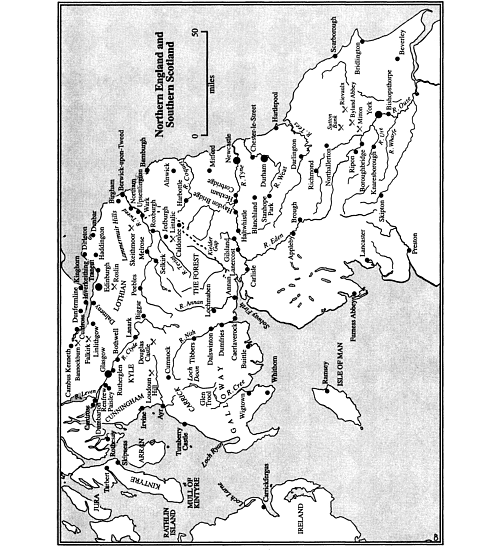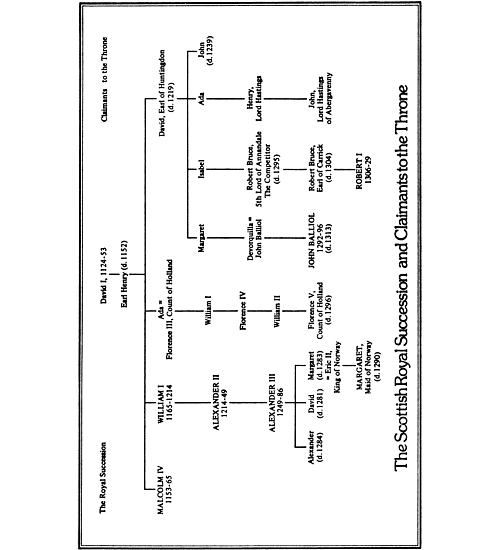| 1274 | Birth of Robert Bruce on 11 July. |
| 1286 | Death of Alexander III. Election of guardians. The Turnberry Bond. |
| 1289 | Treaty of Salisbury. |
| 1290 | Treaty of Birgham. Death of Maid of Norway. Edward I invited to arbitrate. |
| 1291 | Edward I accepted as superior lord of Scotland. |
| 1292 | Balliol crowned and renders homage. Edward I repudiates Treaty of Birgham. |
| 1293 | King John (Balliol) summoned before English Parliament and convicted of contumacy. |
| 1294 | War between Edward I and Philip IV of France. Welsh revolt. |
| 1295 | King John replaced by Council of Twelve. Treaty between France and Scotland. Bruces grandfather dies. |
| 1296 | Outbreak of war between England and Scotland. Sack of Berwick. King John abdicates. The Ragman Roll. Freeholders pay homage to Edward I. |
| 1297 | Insurrection. Andrew Moray, William Wallace. Capitulation of Irvine. Battle of Stirling Bridge. Andrew Moray dies of wounds. |
| 1298 | Wallace knighted and appointed guardian. Edward I invades Scotland. Battle of Falkirk. Bruce and Comyn appointed guardians. |
| 1299 | Lambert on third guardian. Scots take Stirling Castle. |
| 1300 | Bruce resigns guardianship. Replaced by de Umfraville. English invasion. Truce. |
| 1301 | Soulis appointed sole guardian. English invasion. |
| 1302 | Truce. Bruce submits to Edward I. Marries Elizabeth de Burgh. |
| 1303 | Battle of Roslin. Peace treaty between France and England, excluding Scots. |
| 1304 | Bruces father dies. Comyn surrenders. Bond between Bruce and Lamberton. Stirling captured by Edward I. |
| 1305 | Wallace captured and executed. New ordinance for government of Scotland. |
| 1306 | Death of Comyn. Douglas joins Bruce. Bruce crowned at Scone: defeated at battles of Methven and Dalry: escapes to Dunaverty and then Rathlin. His brother Nigel captured at Kildrummy Castle and executed. His wife, sisters and daughter captured at Tain. |
| 1307 | Bruce lands at Turnberry. Guerrilla war in southwest Scotland. His brothers Alexander and Thomas captured in Galloway and executed. Bruce defeats English at Glen Trool and Loudon Hill. Rising in Moray. Edward I dies. Bruce moves north, falls ill. |
| 1308 | Battle of Inverurie. Herschip of Buchan. Battle of Brander. Earl of Ross submits to Bruce. |
| 1309 | St Andrews parliament. Scotland north of the Tay under Bruces control. |
| 1310 | Edward II invades Scotland. |
| 1311 | Bruce raids northern England. |
| 1312 | Bruce again raids northern England. Treaty of Inverness between Scotland and Norway. |
| 1313 | Bruce captures Perth. Reconquers southwest Scotland and Isle of Man. |
| 1314 | Douglas captures Roxburgh. Randolph captures Edinburgh. Battle of Bannockburn. |
| 1315 | Act of Succession. Marriage of Princess Marjorie. Edward Bruce invades Ireland. |
| 1316 | Edward Bruce crowned King of Ireland. Death of Princess Marjorie. |
| 131617 | Bruce in Ireland. |
| 1318 | Berwick taken by Scots. Edward Bruce slain in Ireland. Succession to Scottish throne settled on Princess Marjories son Robert Stewart. |
| 1319 | Edward II besieges Berwick. Douglas and Randolph invade England. The Chapter of Myton. Two-year truce. |
| 1320 | The Declaration of Arbroath. Souliss onspiracy. |
| 1322 | Edward IIs last invasion of Scotland. Bruce raids England. Defeats Edward II at Old Byland, Yorkshire. |
| 1323 | Harclay attempts peace treaty. Executed by Edward II. Official negotiations lead to thirteen-year truce. |
| 1324 | Pope recognizes Bruce as King of Scotland. Queen Elizabeth gives birth to male heir. |
| 1326 | Treaty of Corbeil between France and Scotland. Succession to Scottish throne settled on David Bruce, remainder to Robert Stewart. |
| 1327 | Deposition of Edward II. Truce broken. Edward III advances on Scotland. Outwitted by Douglas and Randolph at Stanhope Park, Durham. Bruce invades Northumberland. |

